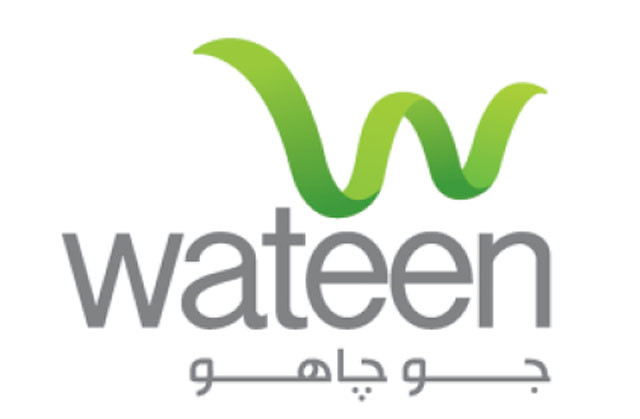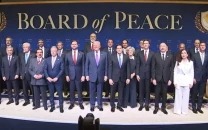Telecommunications infrastructure: Through rebranding, Wateen seeks expansion, profitability
Company to focus on consumer business, growing its bandwidth.

A drive through any of the major thoroughfares in Pakistan’s larger cities these days is virtually impossible without passing by a billboard advertising Wateen’s new look and product line. The rebranding is part of the company’s efforts to reach profitability through the retail consumer segment of the market.
“We are preparing for the future by launching new services every month and through better customer services,” said Wateen CEO Naeem Zamindar, in an interview with The Express Tribune. “We want to connect Pakistan with rest of the world.”
The rebranding comes just a year and a half after the company went public. The focus on the retail side of the business is seen by many observers as an attempt to attain stable revenues from a large customer base, rather than having to rely on a few corporate clients, for the bulk of its top line.
Wateen has seen just how volatile that segment of the market can be. For the year ending June 30, 2010, the company saw its revenues plummet by 48% to Rs8 billion after it lost about 80% of its sales to cellular service providers, owing largely to regulatory issues.
“We hope that in next six months Wateen will be able to add up our customers and in 9 months the company will be in profit in terms of cash flows,” said Zamindar.
It is difficult to classify Wateen, since it is not just a wireless internet or cable company. “Fundamentally, Wateen is an investment in Pakistan’s communications infrastructure,” said a portfolio manager at one of the largest institutional investors in the country.
From an investor’s perspective, there is much to like in Wateen. The company owns and operates the largest fibre optic network in Pakistan, with 12,000 kilometres connecting 23 metropolitan areas. It also has one of the largest WiMAX (wireless internet) services in the world, a product that currently has 250,000 subscribers. Analysts say that Wateen’s wireless network is the only one in Pakistan that is capable of handling 3G devices.
In addition, the company also owns the third largest long-distance and international (LDI) network in Pakistan and is rapidly gaining market share in the cable television business with over 125,000 subscribers in Lahore and Multan, poised to become the largest provider in the next few months. Wateen also provides enterprise solutions and data services to over 200 companies.
The story does not stop there, however. The company is rapidly expanding its fibre optic cable network, adding about 1,100 kilometres that will connect 20 cities in northern Balochistan at a cost of about Rs2.4 billion as part of an agreement with the United Services Fund. This is in addition to the Rs2.8 billion, 3,300 kilometre expansion in its network that is already underway in Sindh, Punjab and Balochistan.
Wateen is at the forefront of investing in providing high-speed data capabilities to Pakistan’s rapidly growing broadband market, currently at about 1 million subscribers, a number Wateen executives feel will reach five million in the next five years.
“Due to our already installed fibre optic cables in Pakistan, Wateen is all set to serve the coming generation. We are hoping the same revolution as we seen in cellular companies in last decade,” said the company’s CEO.
Zamindar also dismissed rumours that the Abu Dhabi Group – the company’s major shareholders – were thinking of exiting the telecommunications business in Pakistan. “If that was so, then Wateen would not have been relaunched with its commitment to provide better broadband services to the customers,” he said.
The company has yet to announce its earnings for the financial year 2011. (With additional reporting by Farooq Tirmizi)
Published in The Express Tribune, November 19th, 2011.



















COMMENTS
Comments are moderated and generally will be posted if they are on-topic and not abusive.
For more information, please see our Comments FAQ